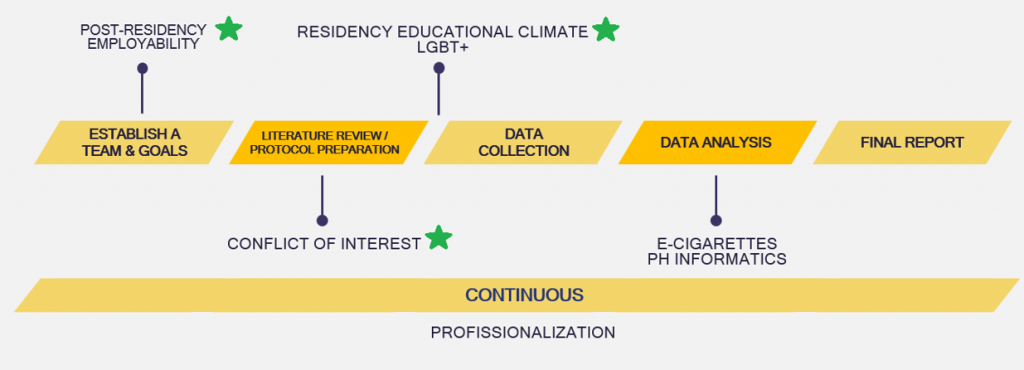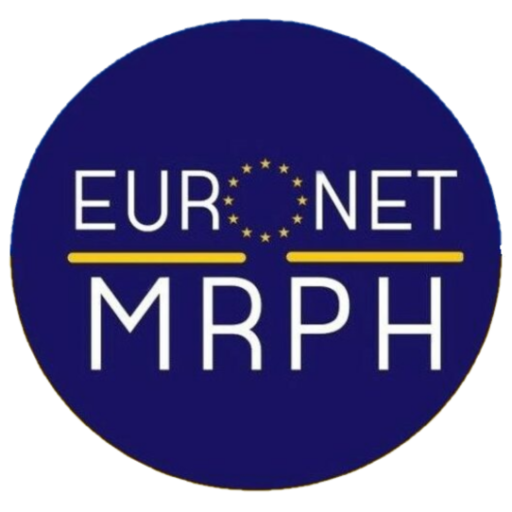Working Groups Update
Research is one of the main projects of Euronet Medical Residents in Public Health (EuroNet MRPH) and its members represent an important part of the network workforce.
These groups constitute a great opportunity to develop disruptive works at an international level and allow the residents to work with colleagues from different European countries, and learn from their experience. The benefits you can take from participating in this unique and challenging work are unlimited.
Beside the working group established to provide the Association of Schools of Public Health in the European Region (ASPHER) with European residents’ feedback on the Professionalisation and Workforce Planning agenda, six research groups are currently active in the Network:
- “Post-residency employability” led by Daniel Alvarez (ES);
- “Conflict of interest” led by Stefano Guicciardi (IT);
- “Residency educational climate” led by Špela Vidovič (SL);
- “LGBT+ residents’ outness and work environment” led by Damiano Cerasuolo (FR);
- “E-cigarettes” led by Pietro Ferrara (IT);
- “Public Health informatics” led by Francesco D’Aloisio (IT).
All working groups are in different stages of work (Figure 1), some still gathering a team, others piloting questionnaires, and the more advanced ones are analyzing the collected data. Three of the WG are still accepting new members to collaborate (marked with a green star in the figure).
 Figure 1 – Working group stages.
Figure 1 – Working group stages.
During the past meeting, at Velika Planina, we organized one workshop where all WG were presented by their leads or co-leads. It was an important moment to exchange ideas and get some feedback on their ongoing work. To the new members it was explained how to join one WG or submit a new one. Together we did some brainstorming and concluded that one of the preferred topics for forming a new WG was “Influence of Politics on Health”.
The challenges and strengths of a WG are several, and were also discussed:
- Work at international level:
– Cultural and linguistic barriers (we’ve learnt some of the difficulties and strategies to translate a questionnaire for example);
– Communication problems;
– Acquire motivation, teamwork and leadership skills;
– Be able to replicate a research in different countries;
– Learn more about health systems and PH residency in other countries;
- Perform a research work:
– Ethical approvals have proved to be one of the biggest barrier to some groups;
– Time management and planification skills;
– Generate knowledge;
– Promote PH.
At the end, you can even end up presenting your work at a big conference, like Špela Vidovič did during the European Public Health (EPH) Conference in Ljubljana (Figure 2).
Don’t waste this opportunity and get more involved in this project. You can get more information about each WG on the website, or by sending an email to research@euronetmrph.org.
You can participate in a currently active WG or suggest a new one.
Public Health resident, Portugal
